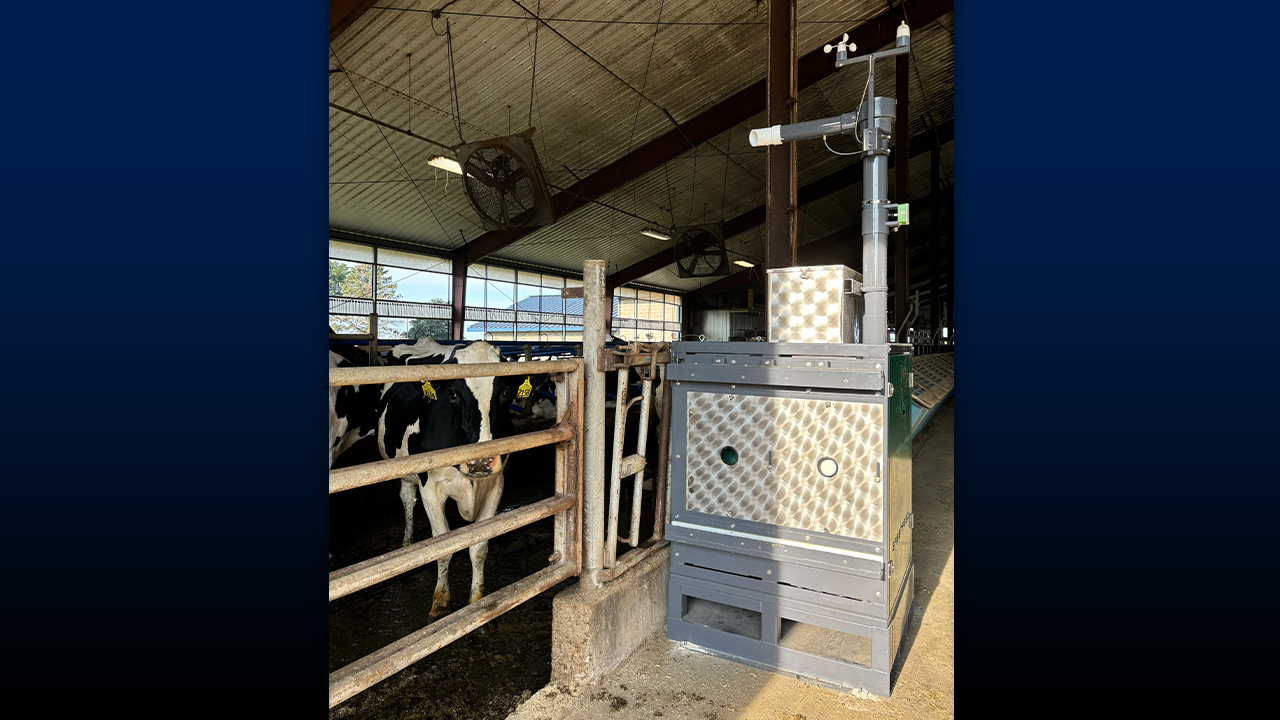
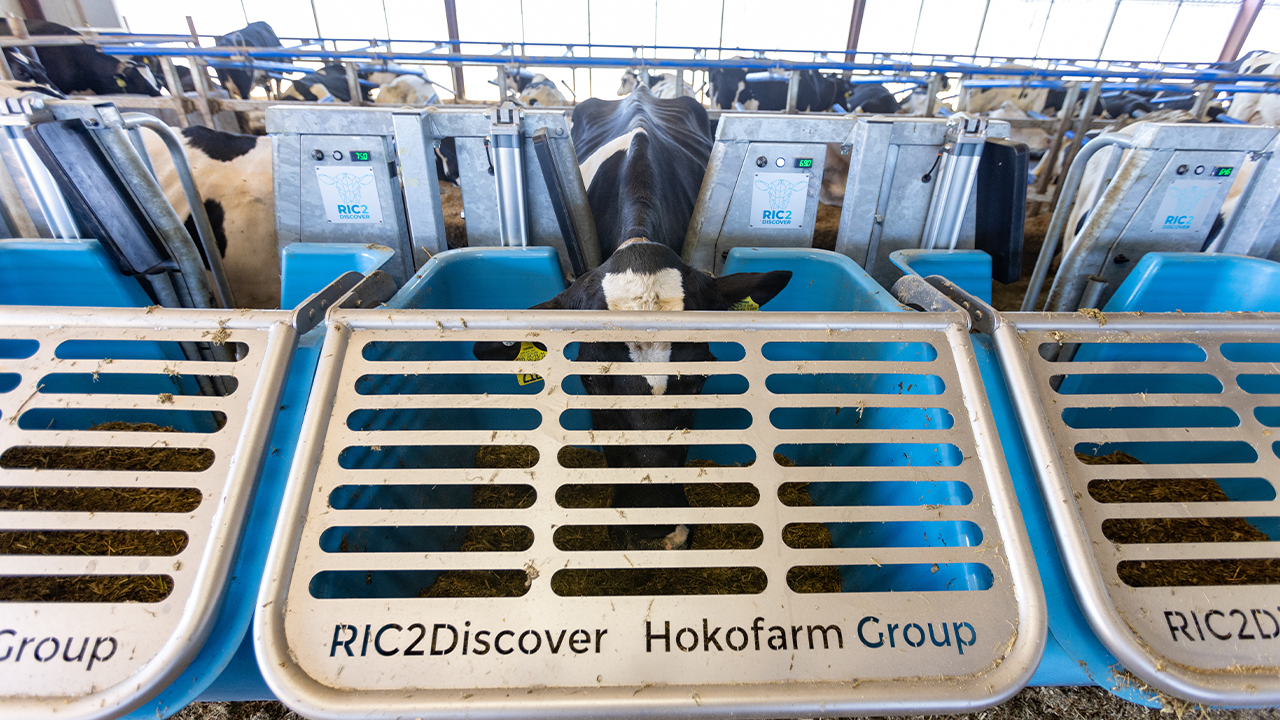
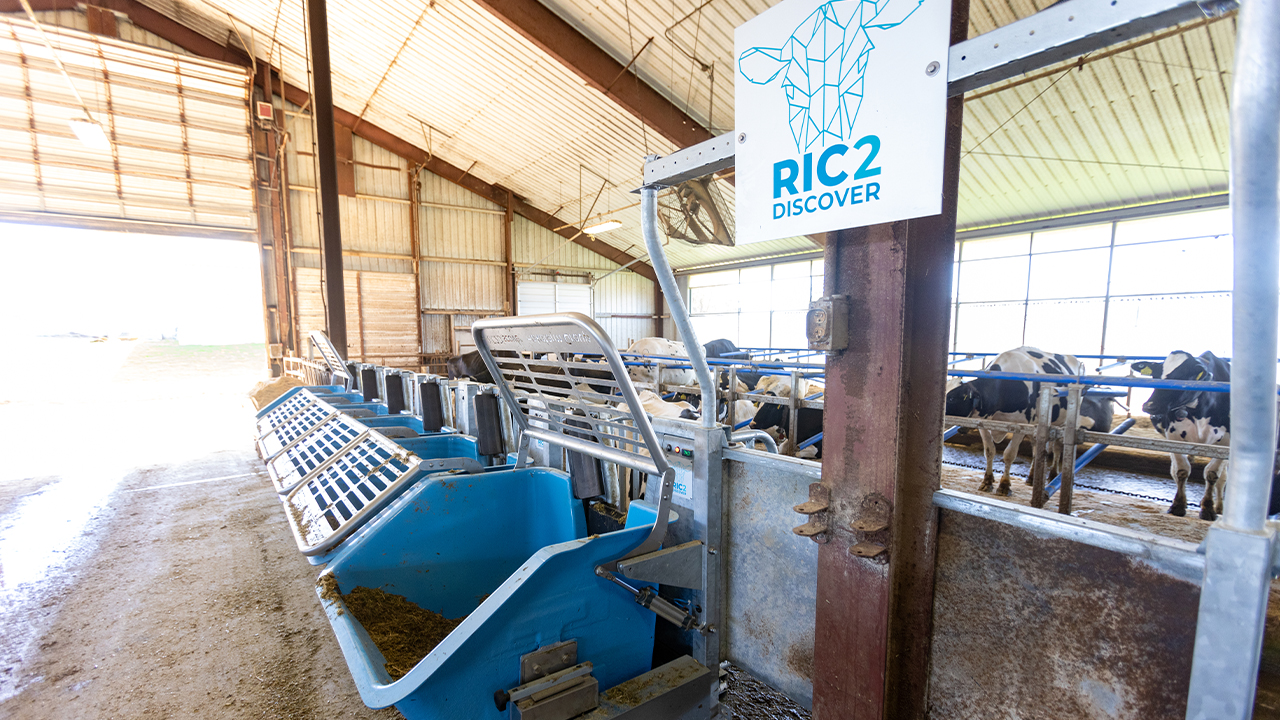
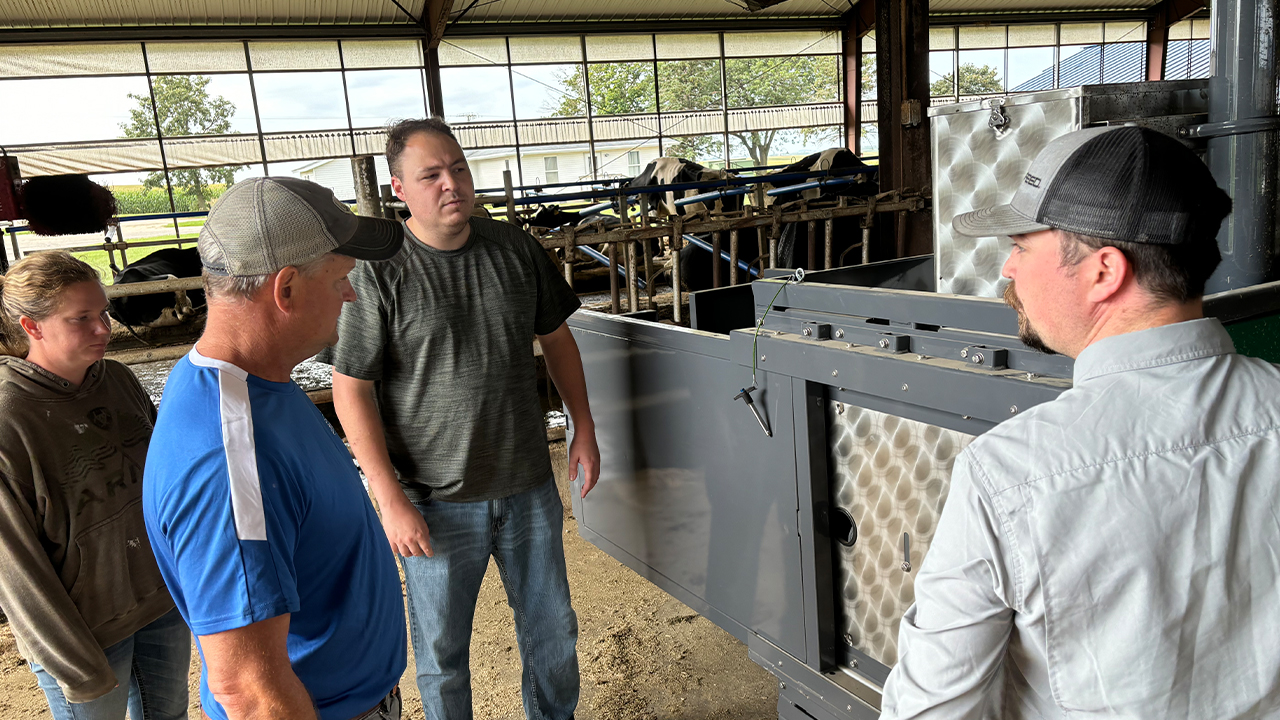
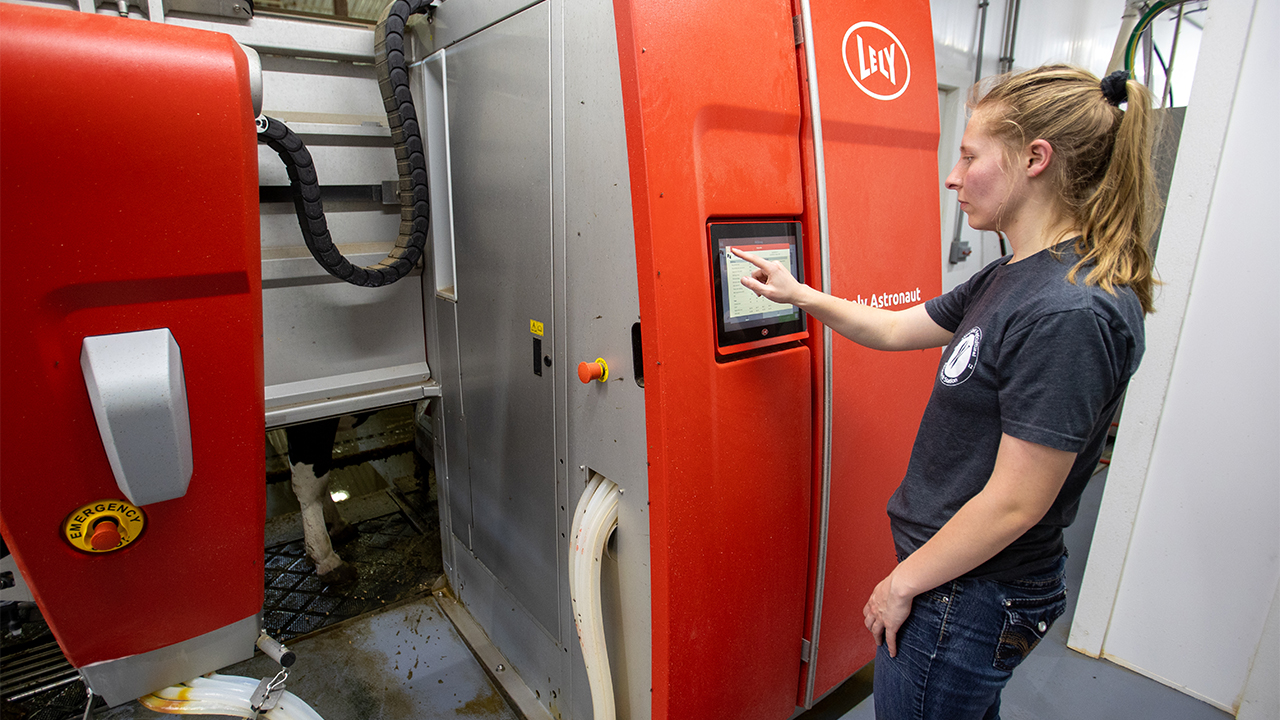
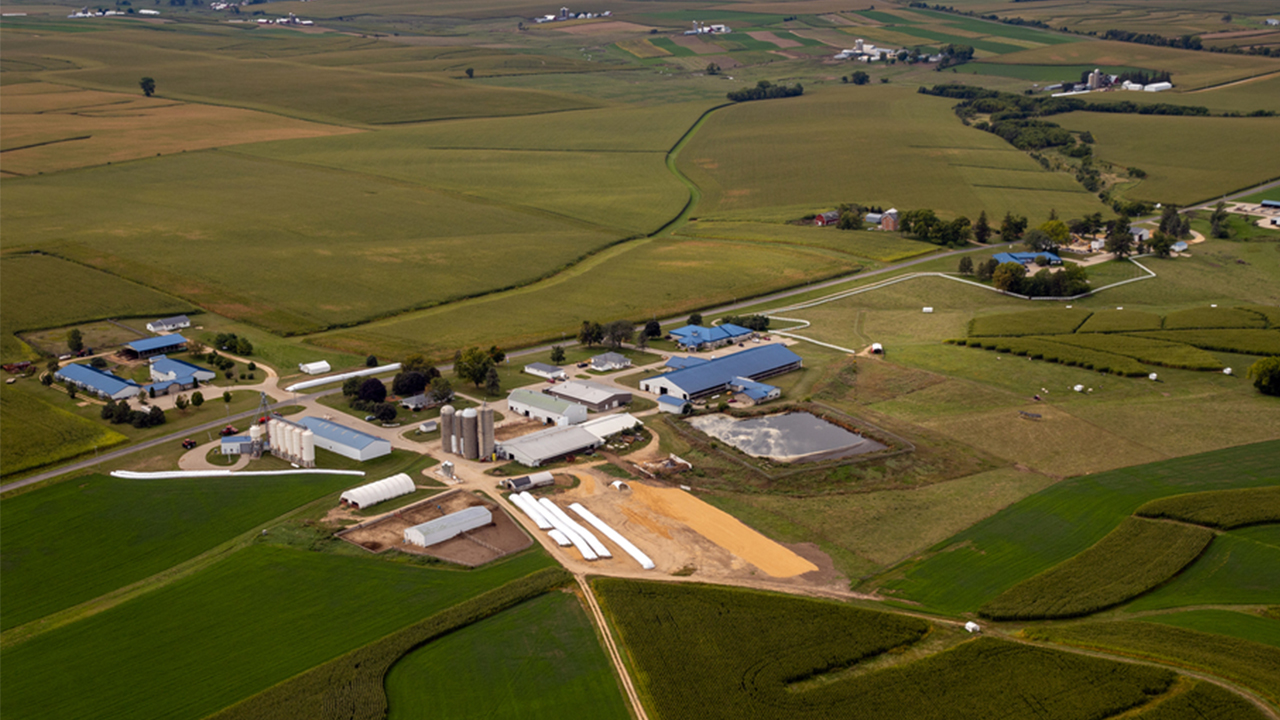
The University of Wisconsin-Platteville’s Pioneer Farm, which honors agricultural tradition within its School of Agriculture, is also at the forefront of innovation. With the recent integration of two cutting-edge systems—one that measures cow burps and another that monitors individual feed consumption—Pioneer Farm is setting a new standard in precision herd management. These advancements not only enhance cattle well-being but also generate data that drives sustainability and efficiency in the global dairy industry, distinguishing UW-Platteville’s School of Agriculture as a leader in the tri-state area.
“The presence of these state-of-the-art machines provides our students with unique, hands-on learning experiences that are often reserved for institutions with dedicated graduate programs,” said Dr. Ryan Pralle, assistant professor of animal, dairy and veterinary sciences in the UW–Platteville School of Agriculture. “Our role as an epicenter for industry engagement has also been significantly bolstered by these technological advancements.”
Pioneer Farm is a 430-acre working farm that offers students immersive experiences with dairy, swine, beef and soil operations. The farm is generating excitement among industry leaders, faculty and students through its use of innovative technologies to monitor herd health. These technologies include the new GreenFeed machine, which measures cow burps; RIC2Discover feed intake machines; and Lely A5 Astronaut robotic milkers, introduced to the university in 2021. Complementing these modern tools, the farm also samples waste and the bulk tank for milk composition, to ensure a comprehensive study of herd health.
The GreenFeed machine is a fascinating piece of technology designed to monitor and measure the gas emissions from cows, specifically focusing on their burps. This machine, resembling a large green box, is placed in feeding areas where cows can freely approach it. Each cow is fitted with an RFID tag, recognizing individual cows and dispensing feed pellets as a lure. While the cows eat and regurgitate their food, the machine captures the gases they emit through a stove pipe system. As the air passes through the machine, sensors analyze its composition, measuring key gases such as oxygen, carbon dioxide, methane and hydrogen. By calculating the speed of the gas flow and its composition, researchers can estimate the daily flux of methane emitted by each cow. By analyzing the gas profile, the team can deduce the efficiency of the fermentation process inside the cow and potentially identify shifts in nutritional imbalances.
“This indirect measure of microbial activity helps in optimizing feed formulations and improving overall digestive health,” said Pralle. “Methane is a potent greenhouse gas, so monitoring and potentially reducing emissions can contribute to more sustainable farming practices. The GreenFeed Machine not only aids in enhancing cattle nutrition but also plays a role in addressing environmental concerns related to livestock emissions.”
The university also received RIC2Discover feed intake machines that play an important role in managing dairy cattle nutrition. The farm utilizes a series of 24 specialized feed stations, each equipped with a large bin designed to hold a day's worth of feed, and an integrated weigh scale. The cow’s RFID tag interacts with the feed station to record precise measurements of feed intake. As a cow eats from the station, its weight is recorded before and after the meal, providing accurate data on the amount consumed. This technology is essential for monitoring the well-being and productivity of the herd, allowing for individualized feed management and efficient farm operations with minimal labor. By streamlining the process of tracking and analyzing feed intake, UW-Platteville enhances both the health of the cows and the overall effectiveness of dairy management.
"The feed bunk is crucial because it allows me to feed different diets to cows in the same pen and observe their responses,” explained Pralle. “When I adjust the robot, whether it's changing feed settings or permission to milk, I can analyze how these changes affect the cows. It helps me determine whether any observed differences are due to the changes I made or simply because the cows ate more. Overall, it provides a comprehensive view of how my actions impact the animals and helps identify the underlying causes.”
Some faculty members and technology, including the feed intake machines, are sponsored by the Dairy Innovation Hub, which the state is supporting with $7.8 million a year. The hub leverages research and development at UW-Platteville, UW-Madison and UW-River Falls.
“The investment from the Dairy Innovation Hub in my research is incredibly meaningful,” said UW-Madison graduate student and UW-Platteville alumna Elizabeth McGuire, who is researching robotic milkers. “The Hub’s support goes beyond just funding; it facilitates collaboration across three campuses and multiple disciplines, which is no easy task, but extremely beneficial for the success of my research.”
UW-Platteville enhanced its capabilities with the addition of two robotic milkers, also funded by the Dairy Innovation Hub. The information collected by the robots varies widely, from health data such as somatic cell count, to advanced lactation information, including milk components and production, to cow behavior.
“We're now investigating how automatic milking systems can improve dairy cow welfare during the dry-off process,” said McGuire. “Our research centers on leveraging AMS to tailor the reduction of milking frequencies for each cow based on their production levels and milking schedules prior to dry-off. By customizing the milking frequency and gradually decreasing it, we hope to facilitate a smoother transition and reduce potential adverse effects. AMS technology is crucial for this individualized approach, providing a more efficient management solution compared to traditional milking systems.”
Undergraduate students can work not only at Pioneer Farm but also directly with McGuire on her research, gaining experiences that can’t be learned from textbooks.
"This experience has been invaluable, giving me hands-on work with dairy cattle and exposure to both farm and lab settings," said sophomore Ethan Bode, from Sycamore, Illinois, majoring in animal science. "I've gained crucial insights that will benefit me as a future veterinarian. I feel incredibly fortunate for this unique opportunity, and while similar experiences might exist elsewhere, UW-Platteville offers these chances more readily to students like me, who might not find them at larger institutions."
With the recent additions of the RIC2Discover feed intake and GreenFeed machines, UW-Platteville’s School of Agriculture will be positioned as a leader in the agricultural science community.
“Through collaborations with graduate students and faculty from partner institutions, our undergraduates have the rare opportunity to work alongside experts in the field,” explained Pralle. “Now, we can do everything that a top-tier university can. For example, I can feed different diets to multiple cows in the same pen and gather individual animal data. This significantly enhances our research capabilities. In the four years I've been here, the past six months have been the most exciting because of these major upgrades. We're looking forward to doing some amazing work, and it's not just us—it's in collaboration with many other outstanding scientists."
UW-Platteville's Pioneer Farm is not just adapting to the future of dairy farming; it is shaping it. By embracing advanced systems in its dairy farm research, every student and staff member embodies the spirit of a true 'Pioneer.'"
For more information on Pioneer Farm, visit: www.uwplatt.edu/department/pioneer-farm
For more information on Dairy Innovation Hub, visit: www.dairyinnovationhub.wisc.edu
*The GreenFeed equipment was funded by a USDA Non-Land Grant Capacity building grant. The Dairy Innovation Hub is paying for initial training and service fees.